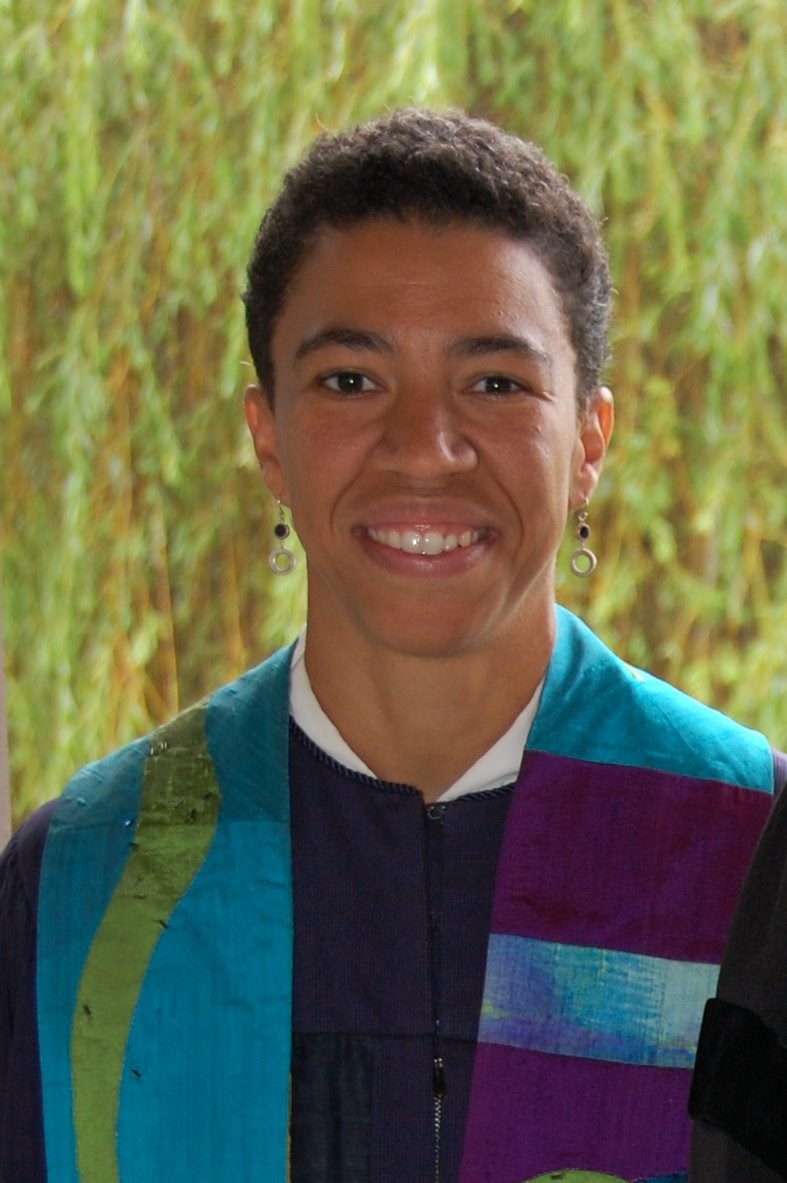I often find myself wrestling with finding words that will make a difference.�� It is at the heart of a minister’s job, after all.�� Words at a memorial service, words for a wedding, words to someone ill or coping with another kind of pain, words in sermons—so many words for so many occasions.�� And often they feel inadequate.�� How can words change anything?�� How can they make any kind of appreciable difference in an individual life, let alone in the seemingly intractable problems facing our world?�� And isn't it the worst kind of hubris to think that anything I say might matter much anyway?
Then I realize that as true as all of that is, it is worth a shot.�� Words are what we have.�� Words are how we reach one another and explain our thoughts and actions.�� I remember that words from teachers and poets and history and mentors and novels have left a lasting mark on me.�� Words have power.�� I am reminded again and again that words need to be spoken with care and deliberateness.�� What we say and how we say it matters.�� Our rhetoric can have a huge impact (I think especially of the hate speech and fear inducing words of Donald Trump and others).��
Much like good nutrition and habits that nurture us, we need a steady diet of words that both challenge and encourage. Lately, I have found myself turning both to the news and analysis of it, but also to poetry.�� Poets, I find, often remind me of the core human dilemmas of living and loving and dying.�� When the headlines threaten to overtake my recognition that all people share these common conditions, I know it is time to close the news tab on my computer and read some poetry
Here’s one I found recently, by Dana Gioia entitled The Places of Return:
��
There are landscapes one can own,
bright rooms which look out to the sea,
tall houses where beyond the window
day after day the same dark river
turns slowly through the hills, and there
are homesteads perched on mountaintops
whose cool white caps outlast the spring.
��
And there are other places which,
although we did not stay for long,
stick in the mind and call us back—
a valley visited one spring
where walking through an apple orchard
we breathed its blossom with the air.
Return seems like a sacrament.
��
Then there are landscapes one has lost—
the brown hills circling a wide bay
I watched each afternoon one summer
talking to friends who now are dead.
I like to think I could go back again
and stand out on the balcony,
dizzy with a sense of déjà vu.
��
But coming up these steps to you
at just that moment when the moon,
magnificently full and bright
behind the lattice-work of clouds,
seems almost set upon the rooftops
it illuminates, how shall I
ever summon it again?
I am not sure what it is about this particular moment in life that makes this poem so poignant for me.�� Perhaps it has something to do with how much the places we have inhabited and visited in our lives leave remnants on us.�� Perhaps it is the way in which our lives are so full of both joy and sadness.�� Perhaps it has something to do with how moments once past can never be brought back—will never come again.�� Whatever the reason….May we all find words that speak to the core of our human being—life, love, death.�� May we be mindful and judicious with the words we speak and write to others.�� May we find words that help to heal and reconcile rather than harm.��
 Rev. Shana Lynngoodis co-minister of First Unitarian Church of Victoria. She has lived and served in Victoria since 2010
Rev. Shana Lynngoodis co-minister of First Unitarian Church of Victoria. She has lived and served in Victoria since 2010
You can read more articles from our interfaith blog, Spiritually Speaking,


